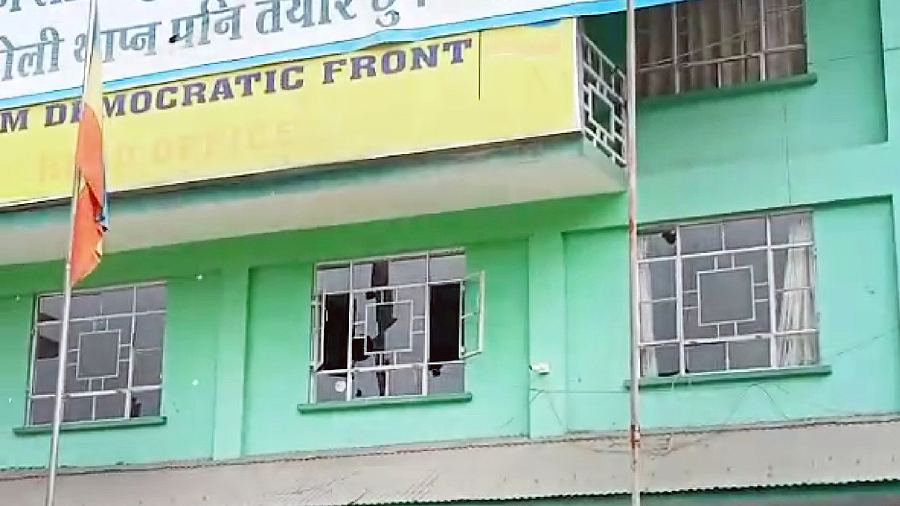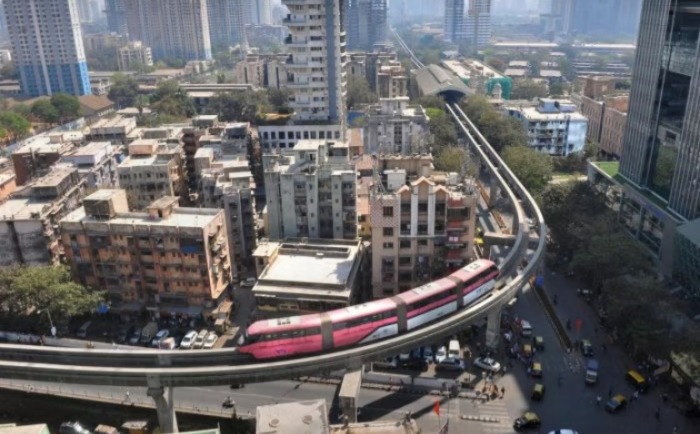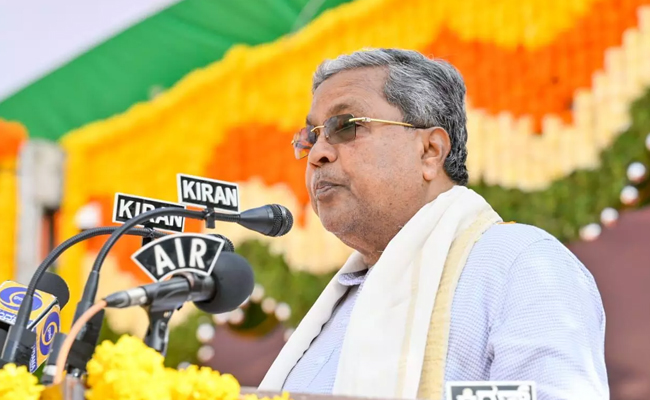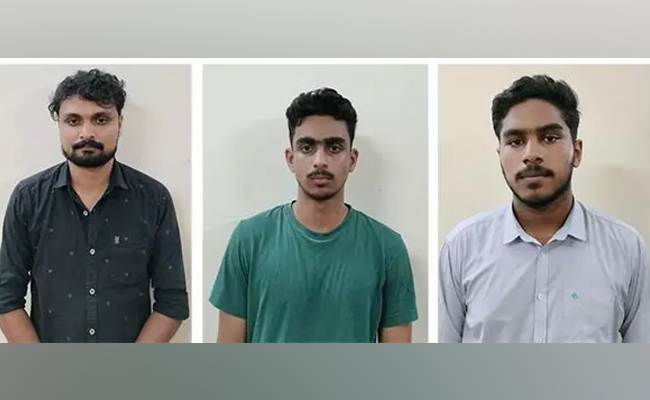Gangtok (PTI): Violence broke out in South Sikkim district's Namchi on Sunday as supporters of the ruling Sikkim Krantikari Morcha (SKM) allegedly vandalised an office of the opposition Sikkim Democratic Front (SDF), police said.
The incident happened at Damthang Road amid the 48-hour bandh called by the SDF, protesting the Supreme Court's observation on the Sikkimese Nepali community.
Soon, a police team reached the spot and controlled the situation, officials said, adding that adequate forces were deployed in the area.
On Saturday, the first day of the bandh, the SDF headquarters on Bypass Road was vandalised. Police said they arrested three persons in connection with the vandalism and are on the search for the others involved in it.
Those arrested have been booked under IPC section 147 (rioting), police said.
Ten SDF members were also arrested in Gangtok for burning the effigy of Chief Minister Prem Singh Tamang. Among those arrested were youth leader Arun Limbu and former minister Tshering Wangdi Lepcha, they said.
The protests come amid public anger after the Supreme Court mentioned the Sikkimese Nepali community as immigrants in an observation on January 13 while extending income tax exemption to all old settlers of the state.
The Joint Action Committee (JAC) has also called for a Sikkim Bandh on February 8 over the issue.
It appealed that each family sends at least three members to join a rally which will be held during the bandh, and asked businesses to remain shut.
The Supreme Court in its order dated January 13, 2023, had directed the Centre to amend the definition of 'Sikkimese' in Section 10 (26AAA) of the Income Tax Act 1961 for including income tax exemption to all Indian citizens domiciled in Sikkim on or before the merger date of April 26, 1975.
The state government has already filed a review petition in the apex court on the matter.
Let the Truth be known. If you read VB and like VB, please be a VB Supporter and Help us deliver the Truth to one and all.
Mumbai: An Indian tourist recently took to social media to express her shock at the high cost of living in Mumbai, comparing it to Singapore, often ranked as the world’s most expensive city.
The woman, who goes by the name Subi on X (formerly Twitter), was surprised to find that the prices at cafes and restaurants in Singapore were comparable to those in Mumbai, particularly in posh areas like Bandra.
Subi, who visited Singapore for a week, shared her experience and called out the cost of dining out, coffee, Ubers, and other experiences in Mumbai. She termed it 'insane,' despite the significant economic disparity between the two cities.
“Was in Singapore for a week and I shook how Mumbai is so expensive when it comes to nice cafes/restaurants and going out, coffee, Ubers, experiences etc. Like Singapore was just as/very slightly more expensive as most restaurants in Bandra and that's absolutely insane,” she wrote on X.
In her post, Subi also touched on the issue of economic inequality, noting that even something as simple as a cup of coffee in Mumbai, which can cost upwards of Rs 450, has become a luxury for many. “It's because of the inequality that even little things like grabbing a coffee from a cafe is a ‘luxury’ that costs 450 rupees while most of us don't make as much as our developed country counterparts to make these expenses make sense,” she added.
Her remarks sparked a discussion, with several users attributing the high costs in Indian cities to a combination of inflated real estate prices and classism. One user opined that Indian cities are insanely overpriced for everything, adding, "I feel like it’s a combination of crazy high rents inflating everything and classism—people want to be gated away from most of society."
A user identified as Sharan Gaba pointed to Mumbai’s skyrocketing real estate prices as a key factor driving up the cost of dining out. "Real estate prices in Mumbai drive up costs for restaurants, who compensate by overcharging customers," Gaba wrote. However, Subi responded by highlighting that rent in Singapore is significantly higher than in Mumbai, yet the prices for basic services remain similar. “In India we premium-ize everything because classism and we want to keep everyone away,” Subi added.
was in Singapore for a week and I shook how mumbai is SO expensive when it comes to nice cafes/restaurants and going out, coffee, ubers, experiences etc. like Singapore was just as/very slightly more expensive as most restaurants in bandra and that's absolutely insane
— subiii (@_subiii_) November 15, 2024





